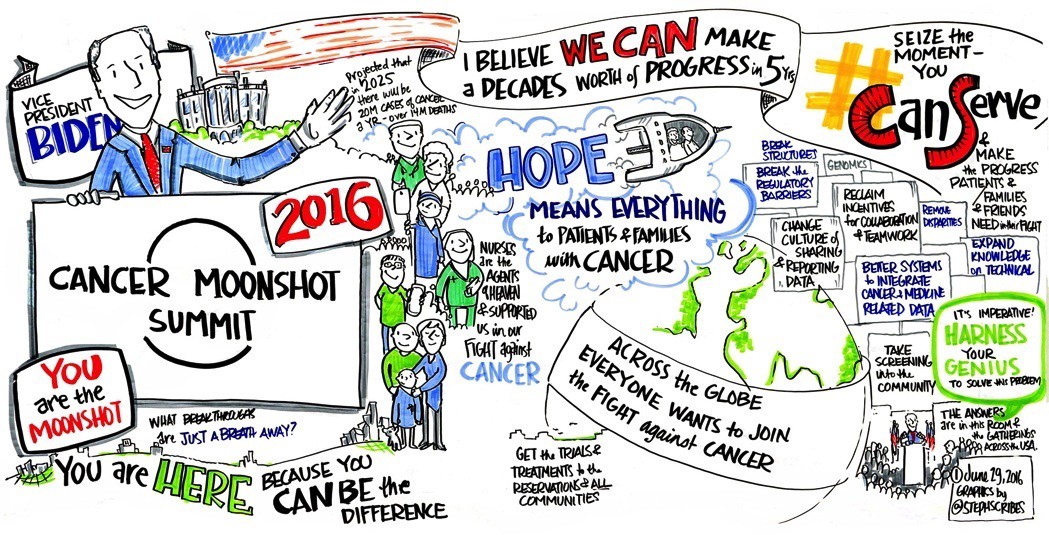
Today Vice President Biden announced a comprehensive plan for his Cancer Moonshot initiative, which seeks to achieve a decade’s worth of progress on cancer research in five years.
As an invited participant in the Moonshot, we commend the Vice President’s radical approach to solving this crucial issue. In April, Biden referenced Ryan Merkley’s viral article in Wired, citing a need for better collaboration and the sharing of cancer data. Today’s announcement underscores the initiative’s commitment to open data, open access, and research. The “audacious, creative, and disruptive approaches” to innovation, interdisciplinary collaboration, and information sharing through crowdsourcing are a direct result of the advocacy work from the open community.
The Cancer Moonshot report acknowledges existing challenges to making progress against cancer, including “a lack of open access and rapid sharing of research data and results.” Biden’s report recognizes the need for open collaboration, open access to research and data, and the need for education and incentives to change existing models.
In June, we made four recommendations to the Cancer Moonshot to accelerate the speed and probability for new cancer treatments and cures:
- Make open access the default for cancer research articles and data.
- Take embargo periods on research articles and data to zero.
- Build and reward a culture of sharing and collaboration.
- Share cancer education and training materials as open educational resources.
As Biden writes, the Moonshot seeks to “unlock scientific advances through open publication,” including the creation of a Genomic Data Commons, which has already accumulated 32,000 patients in a few months. The Genomic Data Commons holds great potential for a more open data landscape and the number of people served has already proven its efficacy.
At today’s presentation, Vice President Biden reiterated the importance of access to information about cancer for researchers, doctors, patients, and families. Further, he said that cancer has now reached an “inflection point,” and that the research and treatment system needs to be reimagined for the 21st century.
It is crucial that this transformation involves reforms that truly support free, immediate open access to publicly-funded cancer research and data. We believe that open sharing and collaboration can begin to address many of the inefficiencies in the existing research and dissemination cycle that the report addresses and seeks to solve.
As the Moonshot Initiative continues, we look forward to joining the many voices involved in order to ensure that we reach our shared goal: Eliminating cancer within our lifetime.






